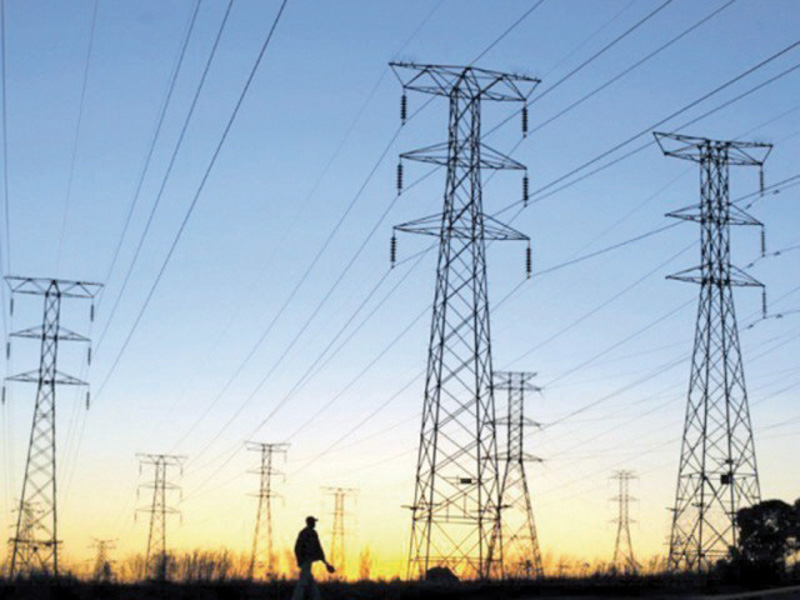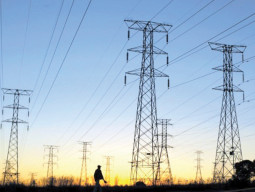
ISLAMABAD:
Ambassador of the Republic of Tajikistan Sherali S Jononov said that the CASA-1000 power import project will help Pakistan get cheaper and clean energy to minimise electricity shortages and build close economic relations with neighbours Kyrgyzstan, Afghanistan and Pakistan.
He said that the project was feasible despite the law and order situation in Afghanistan, and will help it demonstrate its viability as a transit country linking two regions.
“Afghanistan has given a guarantee to ensure security of transmission line to export 1,000 megawatts (MW) by Tajikistan to help Pakistan to minimise electricity shortages,” Ambassador Sherali S Jononov said in an interview.

Among other sectors of the economy, he said that the energy sector of Tajikistan had been showing sustainable growth in the last 15 years. During this period, hydro energy generation has been stable. In addition to big plants, he said that there were also 20 medium and 40 small hydro stations in remote mountain areas, with capacity ranging from 5 kilowatt (kwt) to 1,500 kwt.
He maintained that Tajikistan was the world’s third largest producer of hydroelectric power after the US and Russia. Hydroelectric generation accounts for 76% of the total energy output in the country.
In Pakistan, the rate for firm energy is 13.2 US cents/kilowatt hour (kWh) and the rate for non-firm is 9.2 cents/kWh, while the generation cost in Afghanistan is estimated to be at least 6 cents/kWh based on the provided information. The economic analysis shows that the level cost of transmission is calculated at 4.97 cents/kWh.
The ambassador said that the four participating countries were finalising commercial negotiations, procurement of convertor stations and lines under way. The total estimated cost of the project is $1.160 billion, and will be financed with funds from the World Bank Islamic Development Bank, Arab Cooperation Group and other donors under consideration. He said that a multi-donor trust fund was being established to finance the project.
He said that CASA-1000 MW power import project will ensure a steady source of revenue for the Kyrgyz Republic and Tajikistan, the weakest economies in Central Asia, and requires no new investment in generation because it uses surplus water that would otherwise be wasted.
He said that this project will not only alleviate electricity shortages in Pakistan but will also replace fuel-based electricity generation for Afghanistan and Pakistan. It will also establish Afghanistan as a viable transit country and offer transmission capacity for other countries during the off-peak season. He said that it will also create a viable governance mechanism to build confidence among neighbours.
Afghanistan, the Kyrgyz Republic, Pakistan, and Tajikistan have been pursuing the development of electricity trading arrangements and the establishment of a Central Asia-South Asia Regional Electricity Market (CASAREM). The initial plan was to export power in the range of 1,000 to 1,300 MW from the Kyrgyz Republic and Tajikistan to Pakistan and Afghanistan. The major share of the export will be used by Pakistan, and approximately 300 MW will be imported by Afghanistan.
He said that the Project commercial structure had been finalised and the option of a Contractual Joint Venture was preferred by the Joint Working Group. He maintained that the Project Commercial Contract Framework and Model Power Purchase Agreement had been developed and was under review and discussion by the participating countries. An agreement to support procurement of constructor/operator had been signed by all.
The ambassador said that the trade potential of Tajikistan in Pakistan was $1.141 billion and trade potential of Pakistan in Tajikistan was $0.629 billion.
“Both countries have also agreed to cooperate in field of explorations, extraction and processing of gas and oil products,” he added.
Published in The Expres Tribune, February 17th, 2014.
Like Business on Facebook, follow @TribuneBiz on Twitter to stay informed and join in the conversation.
COMMENTS (1)
Comments are moderated and generally will be posted if they are on-topic and not abusive.
For more information, please see our Comments FAQ






















































While these projects are great for the short-term. Pakistan needs to focus more on renewable energy. Wind, Solar and Thermal are now more important than ever.